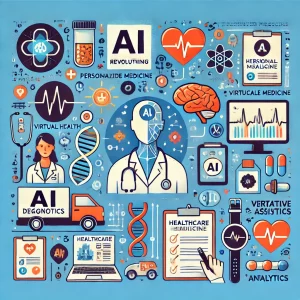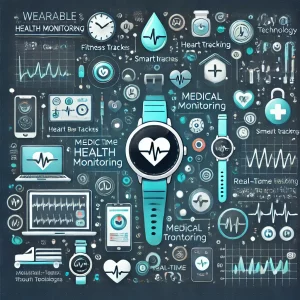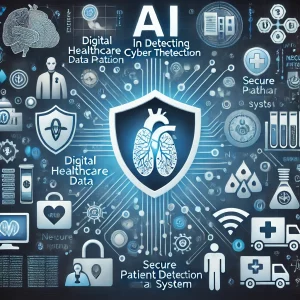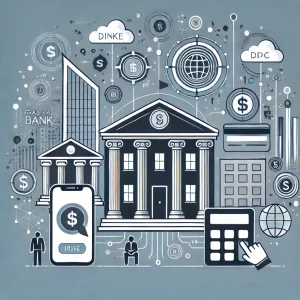How Blockchain is Enhancing Transparency in Healthcare
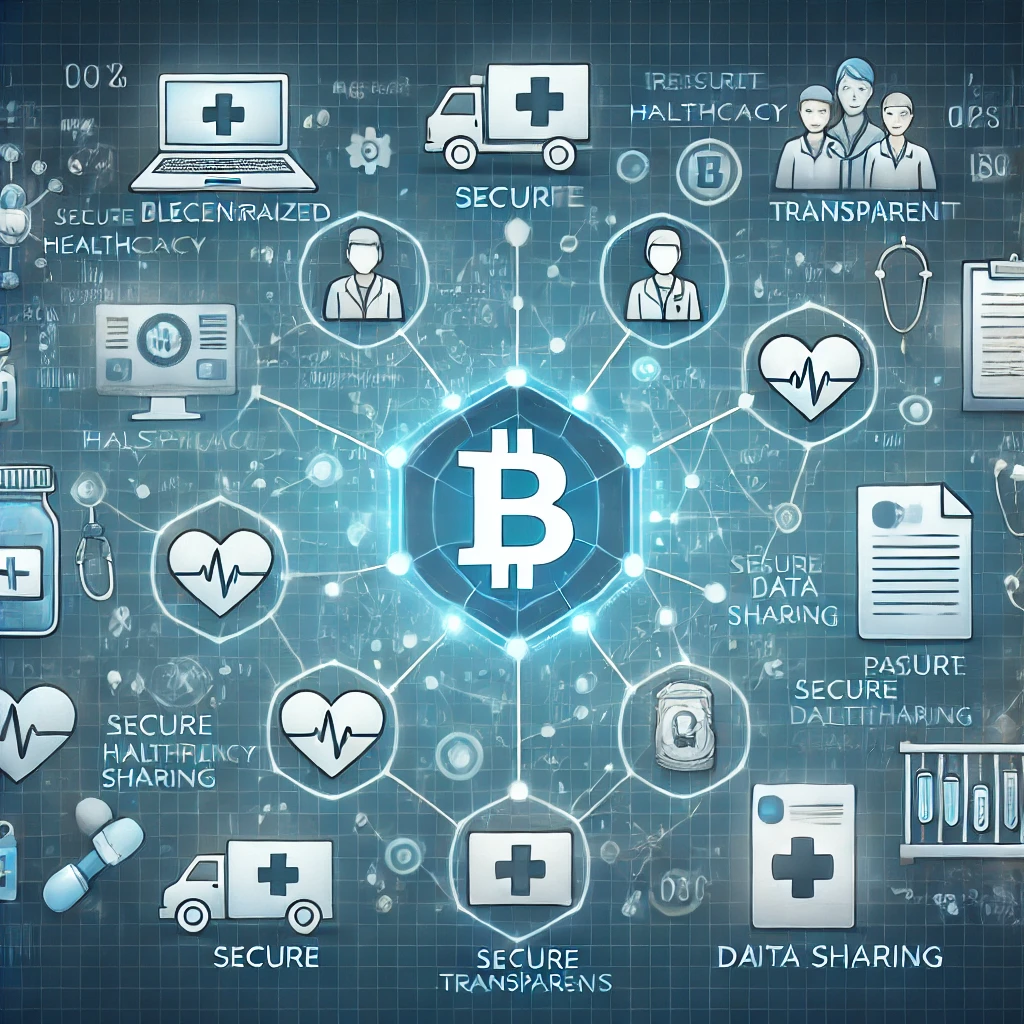
Blockchain technology is increasingly being recognized as a powerful tool for enhancing transparency, security, and efficiency in various sectors, and healthcare is no exception. With the rise of digital health records, data sharing, and a growing need for secure and transparent systems, blockchain offers a unique solution to some of healthcare’s most pressing challenges. By providing a decentralized, immutable, and secure way to store and share data, blockchain has the potential to transform the way healthcare information is managed and accessed.
In this article, we will explore how blockchain is enhancing transparency in healthcare, its key applications, benefits, and the challenges that lie ahead.
What is Blockchain?
Blockchain is a distributed ledger technology (DLT) that enables multiple parties to record and share data in a decentralized and secure manner. Each piece of information, known as a “block,” is encrypted and linked to the previous block, forming a chain. This decentralized approach ensures that data is transparent, traceable, and tamper-proof, as any attempt to alter a block would affect the entire chain.
In healthcare, where sensitive data such as patient health records, treatment histories, and clinical trial results are critical, blockchain’s ability to provide transparency and security can address many existing issues.
Key Applications of Blockchain in Healthcare Transparency
1. Electronic Health Records (EHRs) Management
One of the most significant applications of blockchain in healthcare is the management of electronic health records (EHRs). Current EHR systems are often siloed, making it difficult for healthcare providers to access comprehensive patient data across different institutions. This fragmentation can lead to incomplete medical records, delays in treatment, and medical errors.
Blockchain technology offers a solution by enabling secure, decentralized EHR systems where patient data is easily accessible and updated by authorized healthcare providers. With blockchain, patients can also have more control over their health data, deciding who can access their records and ensuring transparency in how their information is used.
Because blockchain is immutable, any changes made to a patient’s health record are permanently recorded and visible to all relevant parties, ensuring that all updates are transparent and traceable. This reduces the risk of data tampering or fraud, providing both patients and healthcare providers with greater confidence in the accuracy and integrity of medical records.
2. Supply Chain Transparency
The healthcare supply chain is complex, involving multiple stakeholders, including manufacturers, suppliers, healthcare providers, and regulatory bodies. Ensuring the authenticity and safety of medical products, such as pharmaceuticals, vaccines, and medical devices, is critical to patient safety.
Blockchain can improve transparency in the healthcare supply chain by providing a tamper-proof ledger that tracks every step of a product’s journey, from manufacturing to delivery. This enables healthcare providers to verify the authenticity of medical products and reduce the risk of counterfeit drugs entering the supply chain. Regulatory bodies can also use blockchain to monitor compliance with safety standards, ensuring that products meet quality requirements before they reach patients.
For example, pharmaceutical companies can use blockchain to track the production and distribution of vaccines, ensuring that only genuine products are administered to patients. By recording every transaction in the supply chain, blockchain improves transparency, reduces the risk of fraud, and enhances patient safety.
3. Clinical Trials and Research Transparency
Blockchain can enhance transparency in clinical trials by providing a secure and immutable record of all trial data, including patient consent, trial protocols, and results. Clinical trials are often criticized for a lack of transparency, with concerns about data manipulation, selective reporting, and the suppression of negative results.
By using blockchain, researchers can create a transparent and tamper-proof record of clinical trial data, ensuring that all findings are publicly accessible and verifiable. This increases trust in the research process and ensures that trial data is not altered or hidden. Patients participating in trials can also have greater confidence that their data is being handled ethically and transparently.
Blockchain can also improve collaboration between researchers by providing a secure platform for sharing data. This can accelerate medical research and ensure that findings are more widely available to the scientific community.
4. Patient Consent and Data Privacy
Patient consent is a critical aspect of healthcare, particularly when it comes to sharing sensitive health data for research, treatment, or third-party services. However, current consent management systems are often inefficient and lack transparency, leading to confusion about who has access to patient data and how it is being used.
Blockchain can streamline the process of managing patient consent by providing a secure, transparent record of all consent agreements. Patients can use blockchain-based systems to grant or revoke access to their health data in real time, ensuring that only authorized parties can view their records. This improves transparency and empowers patients to take control of their health information.
Moreover, blockchain’s decentralized nature enhances data privacy by ensuring that patient data is stored securely and shared only with authorized individuals. This reduces the risk of data breaches, ensuring that sensitive health information remains confidential.
Benefits of Blockchain in Enhancing Healthcare Transparency
The use of blockchain in healthcare offers numerous benefits, particularly in improving transparency, security, and trust in healthcare systems. Some key benefits include:
1. Data Security and Integrity
Blockchain’s decentralized and immutable nature ensures that healthcare data is secure and cannot be tampered with. This enhances the integrity of patient records, clinical trial data, and supply chain information, reducing the risk of fraud or manipulation. By providing a permanent and traceable record of all transactions, blockchain ensures transparency in healthcare operations.
2. Improved Patient Trust
Patients are often concerned about the privacy and security of their health data, particularly in the wake of high-profile data breaches. Blockchain technology addresses these concerns by providing patients with greater control over their data and ensuring that all data transactions are transparent and verifiable. This builds trust between patients and healthcare providers, encouraging more open and collaborative healthcare systems.
3. Streamlined Processes
Blockchain can streamline healthcare operations by reducing the need for intermediaries and simplifying processes such as data sharing, patient consent management, and supply chain tracking. This improves efficiency, reduces costs, and ensures that healthcare providers have access to accurate and up-to-date information, ultimately enhancing patient care.
4. Enhanced Collaboration and Data Sharing
Blockchain’s decentralized nature facilitates secure and transparent data sharing between healthcare providers, researchers, and patients. This improves collaboration across healthcare systems, enabling more accurate diagnoses, personalized treatment plans, and more efficient medical research. By providing a secure platform for data sharing, blockchain encourages greater transparency and innovation in healthcare.
Challenges of Implementing Blockchain in Healthcare
While blockchain offers significant benefits for enhancing transparency in healthcare, there are also challenges associated with its implementation:
1. Regulatory and Legal Barriers
The use of blockchain in healthcare must comply with strict data protection regulations, such as the Health Insurance Portability and Accountability Act (HIPAA) in the U.S. and the General Data Protection Regulation (GDPR) in Europe. Ensuring that blockchain systems adhere to these regulations while maintaining transparency and data privacy can be complex and requires careful planning.
2. Interoperability
For blockchain to be effective in healthcare, it must be compatible with existing healthcare systems, such as electronic health record platforms and supply chain management systems. Ensuring that blockchain systems are interoperable with other technologies is critical to their successful adoption.
3. Scalability
Blockchain systems can face scalability issues, particularly when handling large volumes of data, as is common in healthcare. Developing blockchain solutions that can handle the scale and complexity of healthcare data without compromising speed or performance remains a challenge.
4. Cost and Implementation Complexity
Implementing blockchain technology in healthcare requires significant investment in infrastructure, training, and system integration. The cost and complexity of implementing blockchain solutions may be prohibitive for some healthcare organizations, particularly smaller providers with limited resources.
The Future of Blockchain in Healthcare
The future of blockchain in healthcare is promising, with ongoing advancements expected to address current challenges and unlock new possibilities for transparency and innovation. As blockchain technology continues to mature, we can expect to see wider adoption in areas such as personalized medicine, clinical trials, and patient data management.
Blockchain’s ability to provide a transparent, secure, and decentralized platform for managing healthcare data has the potential to transform the industry, improving patient outcomes, reducing fraud, and fostering greater collaboration between healthcare providers, patients, and researchers.
Conclusion
Blockchain technology offers a powerful solution to the challenges of transparency, security, and trust in healthcare. By enabling secure data sharing, streamlining processes, and providing patients with greater control over their health information, blockchain is poised to revolutionize the way healthcare systems operate. While challenges such as regulatory compliance, interoperability, and scalability remain, the potential benefits of blockchain in healthcare far outweigh the risks.
As the healthcare industry continues to evolve, blockchain will play an increasingly important role in ensuring transparency, improving patient care, and driving innovation across the sector.
